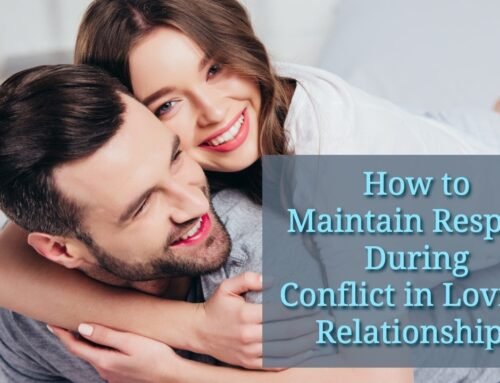Introduction to Relationship Coaching
Relationship coaching is a specialised field aimed at helping individuals and couples enhance their interpersonal dynamics. Unlike traditional therapy or counselling, which often delve into past experiences and psychological underpinnings, relationship coaching focuses on the present and future. The primary objective is to equip clients with actionable strategies and skills to improve their interactions and build stronger connections. This form of coaching is particularly important in today’s fast-paced society, where maintaining healthy relationships can be challenging due to various pressures and distractions.
A relationship coach serves as a guide, offering practical advice and support tailored to each client’s unique situation. These professionals are trained to assist with a wide array of relationship types, including romantic partnerships, familial bonds, and professional associations. Their role is to identify areas of improvement, facilitate effective communication, and foster mutual understanding among involved parties. By doing so, they help clients navigate conflicts, set realistic goals, and cultivate a more fulfilling and harmonious relationship landscape.
One of the key distinctions between relationship coaching and other forms of counselling or therapy lies in its proactive and goal-oriented approach. While therapy might explore deep-seated issues and emotional traumas, relationship coaching is more about identifying current challenges and implementing strategies to overcome them. This makes it an appealing option for those who are looking for immediate, practical solutions rather than prolonged analysis.
In essence, relationship coaching offers a valuable resource for anyone seeking to enhance their interpersonal relationships. Whether it’s guiding a couple through a rough patch, helping family members strengthen their bonds, or improving workplace dynamics, the benefits of relationship coaching are far-reaching. This proactive and supportive approach ensures that clients are well-equipped to build and maintain healthier, more rewarding relationships.
Enhanced Communication Skills
Active Listening and Empathy
Active listening is a foundational technique used in relationship coaching. Coaches emphasize the importance of truly hearing and understanding the other person’s perspective, rather than merely waiting for their turn to speak. This involves maintaining eye contact, nodding in acknowledgment, and providing verbal affirmations, which can make the speaker feel valued and heard. By practicing active listening, individuals can reduce misunderstandings and build stronger, more empathetic connections.
Conflict Resolution
Another critical aspect of communication addressed by relationship coaches is conflict resolution. Coaches teach clients how to approach disagreements constructively, focusing on the issue rather than attacking the person. Techniques such as “I” statements, which express personal feelings without blaming the other party, and time-outs, which allow for cooling off periods during heated discussions, are commonly used. These methods can help de-escalate conflicts and foster a more collaborative problem-solving environment.
Overcoming Communication Barriers
Additionally, relationship coaching can address common communication issues such as passive-aggressiveness, stonewalling, and misinterpretation of non-verbal cues. For instance, a coach might work with a couple to identify patterns of passive-aggressive behaviour and develop strategies for more direct and honest communication. Similarly, they might help individuals recognise and interpret body language and facial expressions more accurately, reducing the likelihood of miscommunication.
Overall, the benefits of relationship coaching in enhancing communication skills are manifold. By learning and applying these techniques, individuals and couples can navigate their interactions more effectively, leading to healthier and more fulfilling relationships. Whether guided by a life coach or a specialised relationship coach, the journey towards improved communication can significantly impact one’s personal and professional life.
Strengthening Emotional Bonds
Building Trust and Intimacy
One of the paramount benefits of relationship coaching is the enhancement of emotional bonds between partners. Emotional intimacy and trust are the cornerstones of any healthy relationship. They foster a sense of security and mutual understanding, creating a foundation where love and respect can thrive. Relationship coaching helps couples delve deeper into their emotional landscapes, enabling them to communicate more openly and empathetically.
Overcoming Past Hurts
An essential aspect of strengthening emotional bonds is addressing and resolving past conflicts. Relationship coaches often facilitate conflict resolution sessions where partners can discuss unresolved issues in a safe and structured environment. By working through these conflicts with the guidance of a coach, couples can release lingering resentments and rebuild trust.
Creating Shared Vision
Another effective strategy used in relationship coaching is the development of shared goals and values. Coaches help couples identify common objectives and create a vision for their future together. This process can reignite a sense of partnership and purpose, as both individuals work towards a unified goal.
Maintaining Emotional Connection
Lastly, coaches emphasize the importance of regular check-ins and emotional maintenance. To maintain a strong bond over time, couples are encouraged to make time for each other, engage in meaningful conversations, and practice ongoing mutual appreciation. Small, consistent efforts can prevent emotional drift and ensure that the relationship remains vibrant and fulfilling.
In essence, the role of a life coach in relationship coaching is to provide the tools and support necessary for couples to enhance their emotional connection. Through improved communication, conflict resolution, shared goals, and regular maintenance, partners can build and sustain a deep, trusting, and emotionally fulfilling relationship.
Conflict Resolution and Management
Effective Communication During Conflict
One of the primary methods used in relationship coaching is active listening. Coaches encourage both parties to listen attentively without interrupting, ensuring that each person feels heard and validated. This technique not only mitigates immediate tensions but also cultivates a habit of respectful communication. Another crucial strategy is the use of “I” statements, which allows individuals to express their feelings and needs without assigning blame, thus reducing defensiveness and facilitating a more constructive dialogue.
Identifying Conflict Patterns
Relationship coaches also employ conflict mapping, a technique that involves outlining the conflict’s progression and identifying key triggers. This visual representation helps couples recognize patterns in their disagreements and understand the underlying issues driving their conflicts. Additionally, coaches may introduce problem-solving frameworks that guide couples through a step-by-step process to find mutually agreeable solutions. These frameworks often include brainstorming potential solutions, evaluating their feasibility, and collaboratively selecting the best course of action.
Building Resilience
The benefits of learning effective conflict management skills through relationship coaching are manifold. Couples who engage in coaching are more likely to experience reduced stress and anxiety related to conflicts. They gain a deeper understanding of each other’s needs and develop a stronger emotional connection. Moreover, mastering these skills contributes to long-term relationship success by fostering a more harmonious and supportive partnership. Ultimately, the ability to resolve conflicts healthily enhances the overall quality of relationships, making them more resilient and fulfilling.
Personal Growth and Self-awareness
Self-Discovery and Understanding
One of the primary benefits of relationship coaching is the facilitation of self-exploration. Coaches employ various strategies, including reflective exercises and targeted questions, to assist clients in uncovering aspects of their personality and behaviour patterns that may have been previously hidden or overlooked. This heightened self-awareness enables individuals to recognise their strengths and areas for improvement, ultimately leading to more conscious and intentional interactions with their partners.
Identifying Needs and Boundaries
Understanding one’s own needs and desires is crucial in any relationship. Relationship coaches guide their clients to identify and articulate these aspects clearly. This process not only empowers individuals to communicate more effectively with their partners but also ensures that their own needs are met, reducing feelings of resentment or dissatisfaction over time. Establishing and respecting personal boundaries is another significant area where coaching proves invaluable. By recognising and maintaining these boundaries, individuals can create a balanced dynamic that fosters mutual respect and understanding.
Developing Emotional Intelligence
Moreover, relationship coaching encourages personal growth by helping clients develop emotional intelligence and resilience. These skills are essential for navigating the complexities of interpersonal relationships. Through guided sessions, clients learn to manage their emotions, cope with conflicts constructively, and maintain a positive outlook, even during challenging times. This emotional maturity not only enhances the quality of their relationships but also contributes to their overall well-being.
In essence, the benefits of relationship coaching extend far beyond the immediate realm of romantic relationships. It equips individuals with the tools and insights needed for personal development, leading to more meaningful and harmonious connections in all areas of life.
Building Healthy Relationship Habits
Open Communication
One fundamental aspect of this coaching is fostering open communication. Coaches encourage clients to express their thoughts and feelings honestly, which helps to eliminate misunderstandings and build a foundation of trust.
Quality Time
Another crucial habit is the practice of regular date nights. Allocating specific times for partners to connect without distractions can significantly enhance intimacy and understanding. Relationship coaches often suggest creative ways to keep these date nights interesting and meaningful, ensuring that the practice is both enjoyable and beneficial.
Mutual Respect
Mutual respect is another cornerstone of a healthy relationship. Coaches work with clients to identify behaviours that may undermine respect and replace them with positive interactions. This involves recognizing each other’s boundaries, appreciating differences, and demonstrating empathy. By reinforcing these habits, couples learn to navigate conflicts more effectively and grow stronger together.
Self-Care and Shared Activities
Moreover, relationship coaches assist clients in developing routines that promote emotional and physical well-being. Examples include shared hobbies, regular exercise, and mindful practices such as meditation or journaling. These activities not only enhance individual well-being but also strengthen the bond between partners.
Through continuous support and accountability, relationship coaching ensures that these healthy habits are not just temporary fixes but become ingrained in the clients’ lives. By building and maintaining these positive behaviours, individuals and couples can experience more fulfilling and resilient relationships.
Improving Overall Relationship Satisfaction
Relationship coaching has proven to be a vital tool in enhancing the satisfaction levels within personal relationships. By focusing on key areas such as emotional connection, communication, and conflict resolution, relationship coaching helps couples and individuals build stronger, more fulfilling connections.
Deeper Emotional Connection
One of the primary benefits of relationship coaching is the improvement of emotional connections. Coaches assist partners in understanding and expressing their emotions more effectively, which fosters a deeper emotional bond. This heightened emotional connection can lead to a greater sense of intimacy and trust, contributing to overall relationship satisfaction.
Effective Communication
Effective communication is another critical component that relationship coaching addresses. Many relationships suffer due to poor communication skills, leading to misunderstandings and unresolved issues. A relationship coach provides strategies and techniques to enhance communication, enabling partners to express their needs and concerns more clearly. Improved communication facilitates mutual understanding and cooperation, which are essential for a healthy relationship. By learning to express needs clearly, listen attentively, and resolve conflicts constructively, couples can create a more harmonious and supportive environment. This, in turn, leads to increased satisfaction and fulfilment within the relationship.
Conflict Resolution
Conflict resolution is another area where relationship coaching can make a significant impact. Conflicts are inevitable in any relationship, but the manner in which they are managed can determine the relationship’s trajectory. Coaches equip individuals with tools to handle conflicts constructively, encouraging a problem-solving approach rather than a confrontational one. This shift in handling disagreements can reduce the frequency and intensity of conflicts, promoting a more harmonious relationship.
Increased Intimacy and Trust
By addressing emotional connections, communication, and conflict resolution, relationship coaching helps couples build stronger bonds based on trust, intimacy, and mutual respect. When partners feel heard, understood, and valued, they are more likely to experience a deeper sense of connection and satisfaction.
Enhanced Problem-Solving Skills
Relationship coaching also empowers couples to become better problem-solvers. By learning to identify issues, brainstorm solutions, and reach compromises, partners can navigate challenges more effectively and strengthen their relationship in the process.
Improved Self-Esteem and Confidence
A healthy and fulfilling relationship contributes significantly to an individual’s self-esteem and confidence. Relationship coaching can help individuals feel more secure and valued, leading to personal growth and overall well-being.
Stronger Support System
A strong relationship provides a solid support system. Couples who have undergone relationship coaching often report feeling more connected and supported by their partner, which can be invaluable during challenging times.
Increased Life Satisfaction
Ultimately, improving relationship satisfaction can lead to increased overall life satisfaction. A harmonious and loving relationship can positively impact various aspects of life, including work, social interactions, and personal well-being.

Conclusion and Next Steps
Relationship coaching offers a multitude of benefits for individuals and couples seeking to enhance their connections and resolve issues. Through structured guidance and expert advice, relationship coaching can help partners improve communication, build trust, and navigate conflicts more effectively. Whether you are dealing with specific challenges or simply desire to deepen your emotional bond, a life coach specialising in relationships can provide the tools and strategies necessary for a healthier, more fulfilling partnership.
If you are experiencing difficulties in your relationship or wish to strengthen your bond, considering relationship coaching could be a crucial step forward. The process begins with identifying a qualified relationship coach who aligns with your needs and goals. Look for professionals with relevant certifications, experience, and positive testimonials from past clients. Initial consultations often provide an opportunity to gauge compatibility and discuss your specific concerns and objectives.
To get started with relationship coaching, research potential coaches and review their credentials. Many coaches offer introductory sessions, which can help you understand their approach and determine if it feels right for you. Once you find a suitable coach, you will typically schedule regular sessions, during which you will work together to set goals, explore underlying issues, and develop actionable plans for improvement. Consistency and commitment to the process are key to achieving lasting results.
By taking these steps, you can embark on a journey toward a more connected and resilient relationship. The benefits of relationship coaching are manifold, offering not just resolution of current issues but also the foundation for ongoing growth and happiness in your partnership. Investing in this process can lead to profound changes, fostering stronger, more satisfying relationships in the long run.































